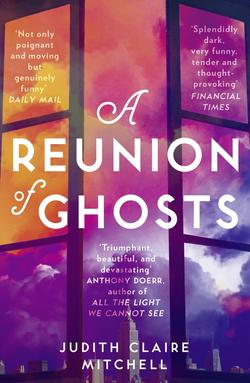Читать книгу A Reunion of Ghosts - Judith Mitchell Claire - Страница 19
The Gay Nineties
ОглавлениеA year later Lenz Alter completes his dissertation. Of it he writes to a friend, “It was a pitiful effort, but they’d had enough of me by then, so we all sat around a large table drinking champagne and pretending I’d done a superb job.”
He’s awarded the PhD in chemistry. It’s May 1891. He’s twenty-two.
Iris, meanwhile, mopishly attends, and two years later disgustedly accepts her degree from the local teachers’ seminary. It’s May 1894; she’s twenty-three.
Friends stop her in the streets. “Have you heard the latest about your Doktor Alter?” they say. She says she hasn’t and doesn’t care to. They tell her anyway.
He’s in Berlin, unable to find a university position: a shame. He’s back in Breslau, unemployed after being fired again from his father’s dye factory: an incompetent. Now back in Berlin, where he’s been turned away from officer training school: a Jew. Now in a mountain sanatorium: a complete nervous wreck.
“You ought to visit him,” they say. Even Lily says this. Even Lily pities him.
Iris takes long walks by herself in the cold. She drinks her father’s liquor. She picks up an old volume of Goethe. Somehow he has begun speaking to her again, so much so that when she combines these activities—the liquor and Goethe—she sobs a great deal. She has regressed: she’s undone anew every time young Werther kills himself. She thinks about becoming an authoress, of committing a few literary murders herself. But she writes nothing, not even a letter to Lenz. She’s afraid he may take any word from her as encouragement to propose again. She doesn’t want to risk breaking anyone’s heart yet again. Not his. Not her own. I’m a stoic, she thinks, and develops a habit of clenching her teeth, which leads to a habit of migraines.
Finally Lily brings home news. Lenz has converted to Christianity and—quelle coincidence!—the next thing you know he was hired by the University of Karlsruhe. Oh—and he met someone there. He’s engaged.
“Quel soulagement!” Iris says.
She sleeps for a week, then reads Die Leiden des jungen Werthers for the fifth or sixth time—an experiment that results, this time, in no tears at all. “Quel soulagement,” she says again, this time to her bedroom walls. “I’m finally over romanticism,” she tells the wall nearest her dressing table. “From here on, it’s nothing but the life of the mind.” The life of the mind, clenched teeth, headaches, and grim self-pleasure. She’s a modern woman.
A few weeks later—talk of coincidences—Breslau University begins accepting women.
Is there a catch? Of course there’s a catch. Women may attend classes only as nonmatriculating auditors. But that’s better than nothing, and Iris immediately takes and passes the rigorous admission exam designed for the women alone. She proceeds to audit classes year after year. It’s 1896, ’97, ’98. She’s twenty-five, she’s twenty-six, she’s twenty-seven …
